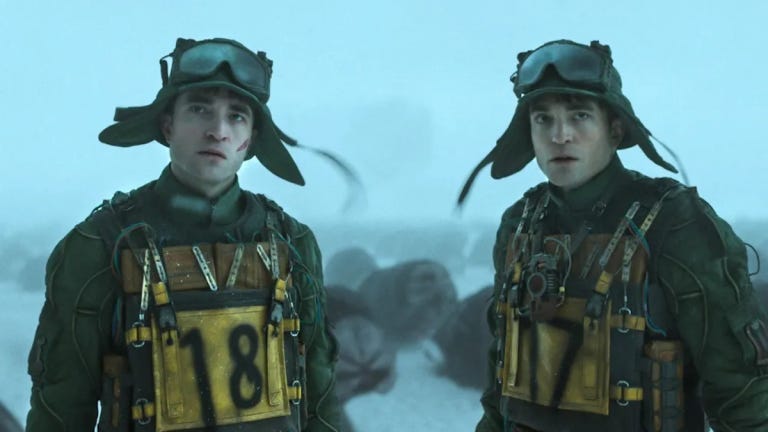After his historic best picture win at the Oscars for Parasite, you may think that the anticipation for Bong Joon-ho’s next film would be soaring among cinephiles. Yet, no such excitement made its way into the atmosphere. It was almost as if something in the air was warning us that what we were about to be served would be far from the competence of his former work, even if we’d been waiting over half a decade. That something in the air would prove to be right. While Parasite was crafted with award-winning prestige, Joon-ho’s sci-fi follow-up Mickey 17 takes a bumpy detour towards political satire that mimics the same overindulgence as Greta Gerwig’s insufferable Barbie.
Robert Pattinson plays Mickey, who out of ignorance, signs up to become an expendable on a colonisation mission that grants the company permission to kill him multiple times to carry out ‘necessary’ experiments. Mickey is granted the pleasure of living again as the company produces multiple copies of his body, taking the count up to eighteen. The seventeenth production of Mickey survives what the company predicted would be a gruelling death from a ‘mother creeper’, taking the form of an intimidating gigantic worm surrounded by her miniature offspring. As Mickey 17 heads back to base, he discovers that the company wasted no time creating the eighteenth version of himself, leaving him to fight for his survival as this time he’s decided he isn’t willing to die.
It’s worth acknowledging that Mickey 17 delivers a strong first hour into the journey we’re committing ourselves to. It rewards us with something interesting: the exploration of our confrontation with death. This stimulation is enhanced further by the affection we feel towards Pattinson’s character due to his frailty and tortured soul that seeks to please those around him at the expense of his own life. It’s a good job Pattinson’s performance is so compelling as it’s the only redeeming feature alongside the adorable ‘creepers’ that we have to carry us into the bizarre remaining hour and twenty minutes.
The intrigue is stalled when Joon-ho turns up the political satire to a deafening volume as the audience is spoon-fed with references to the politicians and public figures that exist in our own reality. In favour of leaning into commentary, Joon-ho abandons the essential cinematic elements that made Mickey 17 so engaging. While Parasite didn’t shy away from expressing its critique of capitalism, character and narrative still remained the priority as the driving force. Joon-ho reverses this in Mickey 17, placing commentary and theme in the driving seat just like Gerwig did with Barbie in which both works suffer a lack of authenticity in both the characters and the worlds these artists have created. Still, the success of the film may have displayed that mass audiences don’t mind being fed ideology in the guise of art, as long as they agree with it of course.
What I couldn’t help reflecting on while suffering through the latter half of Mickey 17 was what are the defining works of cinema in the millennium we find ourselves in now? Which works in the last decade in particular leave behind characters that could live on throughout the generations of viewers? Where are our Ripley’s, Clarice Starling’s, and Lester Burnham’s? Which films are our Rocky or Taxi Driver? Unfortunately, Joon-ho can’t provide any of these answers, nor has any hope of creating them.
Out in UK cinemas now


